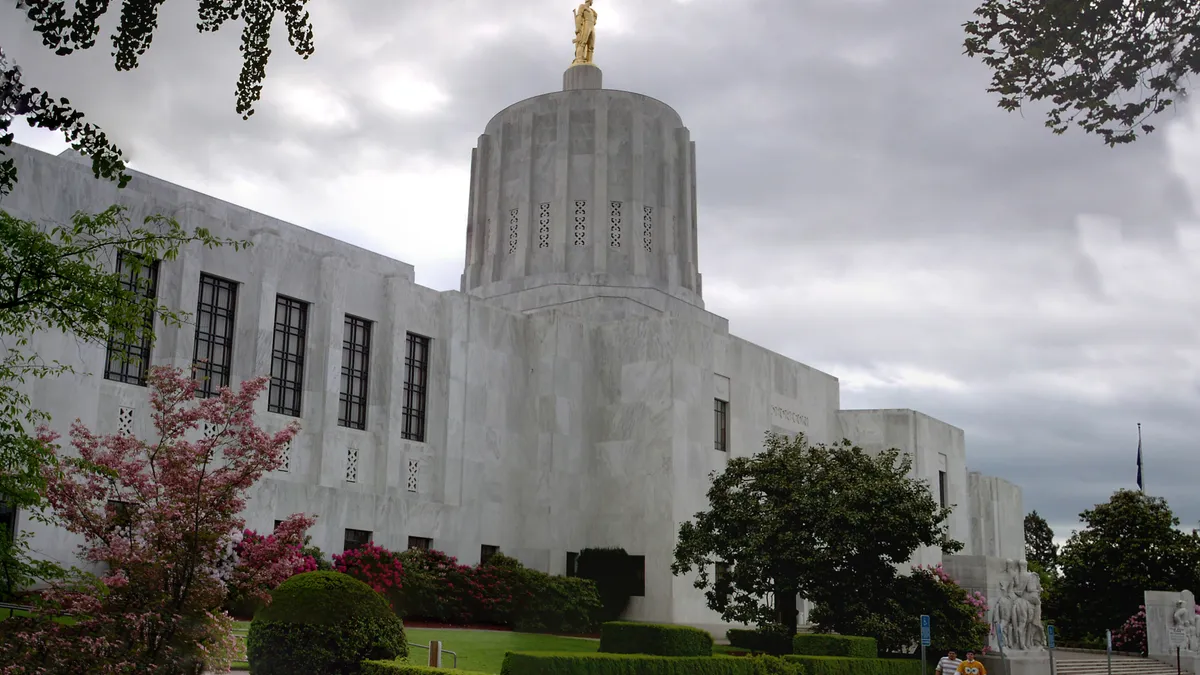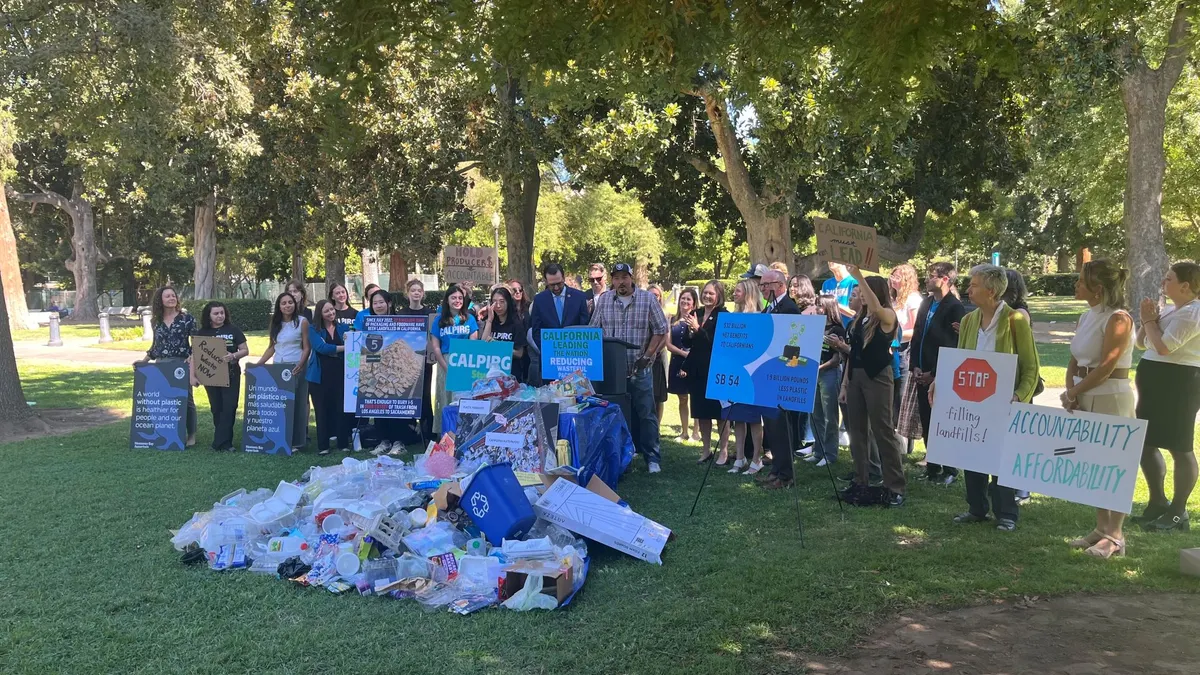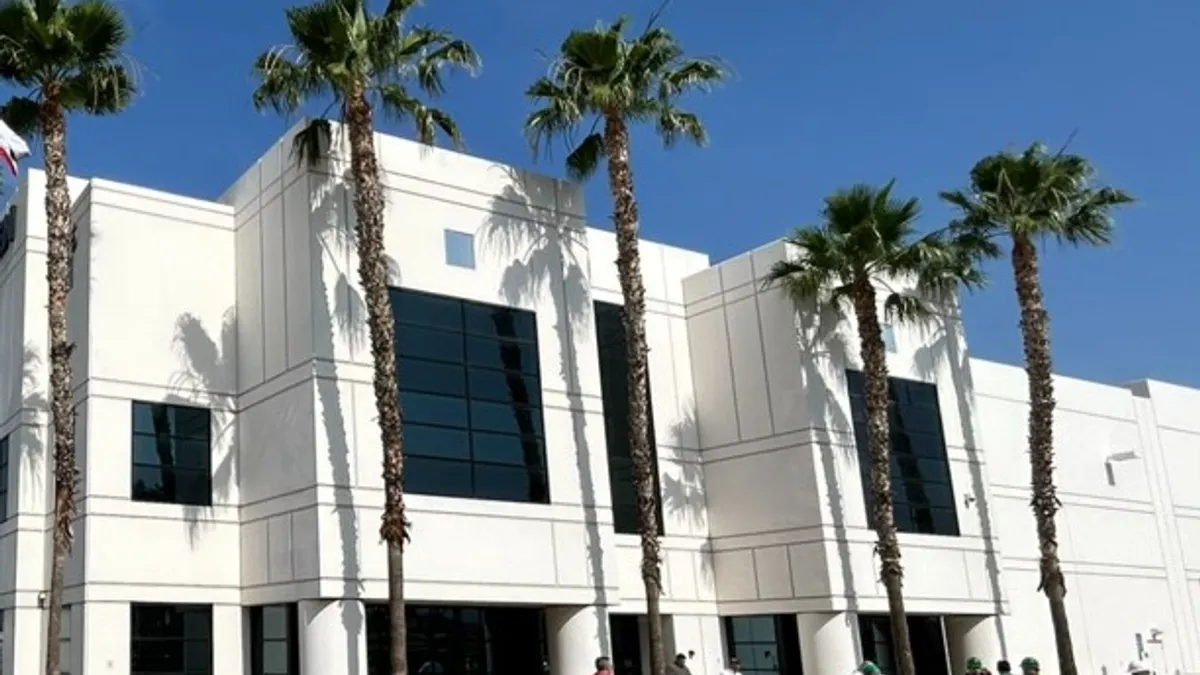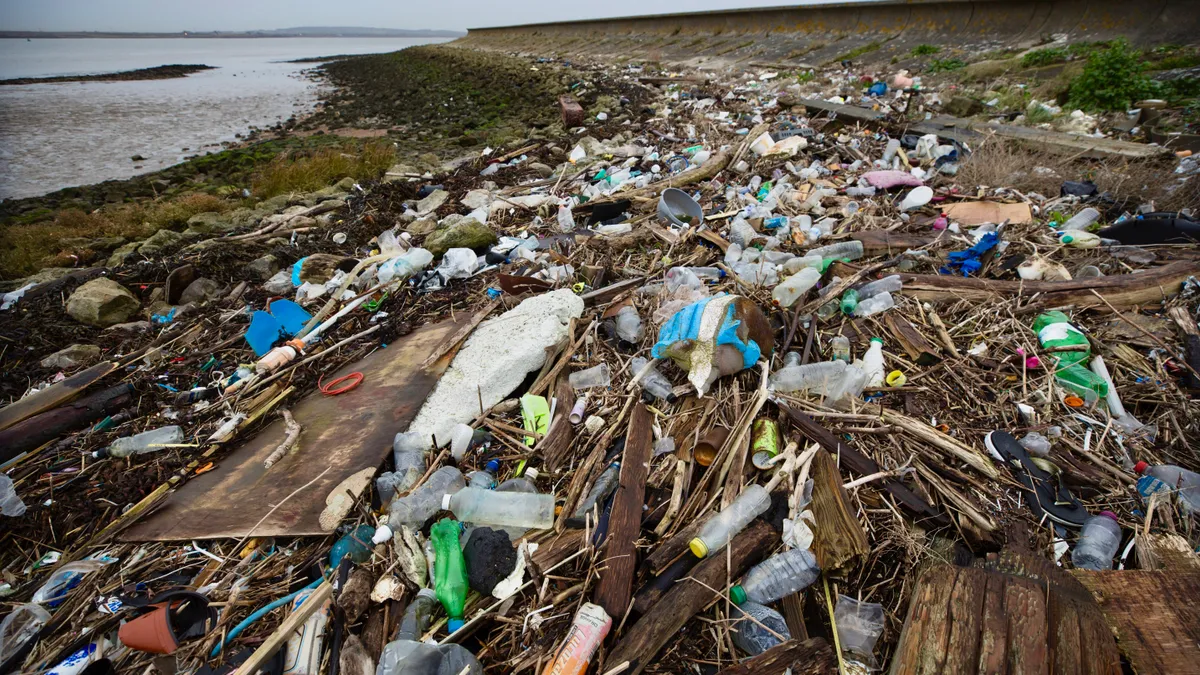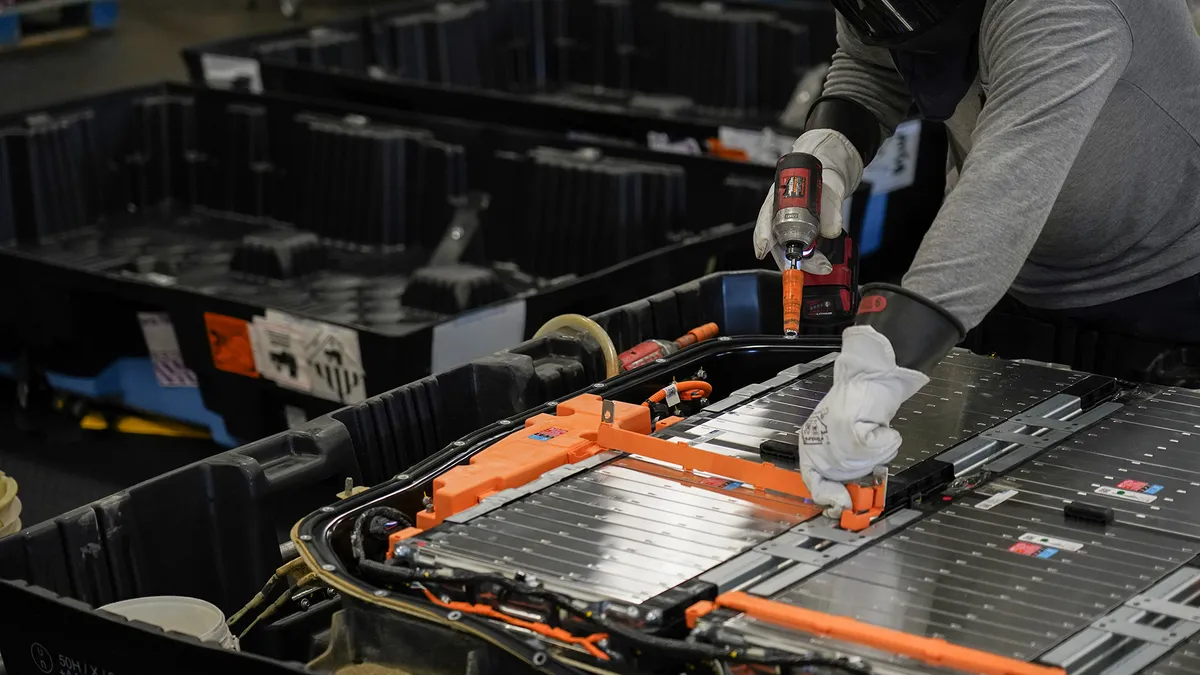Welcome to Scrap Collector, Waste Dive's Friday round-up of insights and stories you may have missed.
Hot on the heels of last month's sweeping national plastic pollution proposal, there's a new federal waste bill in town.
The Zero Waste Act, introduced by Rep. Ilhan Omar, D-Minn. as a "key part of the Green New Deal," would provide up to $250 million in funding for "zero waste" initiatives — including organics recycling infrastructure, e-waste recycling or reuse, source reduction and market development.
"Our country generates over 250 million tons of trash each year. Right now, most of that trash does not get recycled or composted or reused. Instead, it ends up in landfills and incinerators, fueling our climate crisis and polluting the communities who live near these toxic sites," Omar said during a press conference last week. "The only way to combat this crisis is to move to a 'zero waste' economy."
The congresswoman framed waste as "an environmental justice issue," noting that 80% of incinerators are located in low-income communities, communities of color and indigenous lands. In addition to presenting opportunities for economic growth and greenhouse gas reduction, waste diversion "protects communities from the health hazards associated with landfills and incinerators, such as toxic gases, pests, and air and water pollution."
"The Zero Waste Act is spectacular and exactly the direction our country should be taking," Judith Enck, former EPA Regional Administrator and founder of Beyond Plastics, told Waste Dive in an email. "Recycling and composting will [create] many new jobs and end the export of our waste problems to other nations, as is currently happening with plastic exports to Asia."
Eureka Recycling, a Minneapolis-based nonprofit recycler, praised the bill's assistance for communities and its emphasis on "important reduction and reuse strategies that get to the root issue of waste and consumption."
"As a Zero Waste social enterprise and one of Minnesota’s largest recycling processors, Eureka Recycling believes that recycling alone will only get us so far," the organization said in a statement to Waste Dive.
Neil Seldman, co-founder of the Institute for Local Self-Reliance, extended his support for the proposed federal grant program — as long as the "dollars go directly to cities." In an email to Waste Dive, he also suggested a separate program for federally-backed green bonds — "so cities can issue bonds to continue their investments after the $250 million in grants is [exhausted]."
Gary Liss, vice president of Zero Waste USA, commended the bill's commitment to addressing environmental justice, social equity and community economic development issues — as well as its emphasis on organics.
"Support for source separated organics is critical for achieving Zero Waste," he told Waste Dive via email. "In California alone, CalRecycle estimates that another 50-100 facilities will be needed to meet State goals to reduce 75% of all organics to landfills by 2025."
Organics processing has received unprecedented levels of national consideration in recent years — the latest Farm Bill provides a collective $125 million for local food waste reduction and composting programs. According to Frank Franciosi, executive director of the US Composting Council, federal organics infrastructure funding is "certainly needed."
"It seems like infrastructure is something both sides of the aisle could possibly agree on," he told Waste Dive. "When you're talking about providing jobs and being more sustainable — from both an ecological and economic standpoint — it just makes a lot of sense."
"We have a lot of municipalities that want to compost organic waste," he added. "People don't want to spend money to put it in landfills — they realize it's a resource. But people don't have the resources [to build composting facilities]."
Omar's bill follows the Zero Waste Development and Expansion Act, which was reintroduced by Rep. Keith Ellison, D-Minn., in 2017 after failing to receive a committee hearing in 2015. And while this iteration's place in the Green New Deal — and heightened attention to climate policy in the Democratic debates — may buoy its appeal, David Biderman, executive director and CEO of SWANA, expressed skepticism over the bill's chances in Congress.
"Given the unusual number of waste-related bills, the busy congressional agenda in the Fall, including passing an FY 2020 budget, and the upcoming 2020 presidential elections, which is reinforcing partisan lines on Capitol Hill, I would be very surprised if the Zero Waste Act passes in this Congress," he told Waste Dive over email.
IN OTHER NEWS...
Florida man and woman… — Tallahassee Democrat
...dump 3,000 pounds of plastic garbage on the steps of the Florida Historic Capitol. Not exactly an easy thing for legislators to avoid on their way to lunch — which is exactly what Bryan Galvin and Heather Bolint are counting on.
The piles of trash — which include single-use bottles, toys, beach chairs, illegal fishing devices and other debris — were collected by the two Plastic Symptoms co-founders during a four-month hike along Florida's coastline.
"We want to present this to the Legislature so they can see what we’ve seen," Galvin said. "All this represents a tenth of what we documented."
It's a smelly lesson for a legislature that's consistently proven hostile to single-use bans. A proposed ban on plastic carryout bags and straws died in committee last session, while lawmakers approved a bill that — had Gov. DeSantis not declined to sign — would have placed a moratorium on local plastic straw bans.
AROUND THE WORLD
India's garbage cafe offering meals for plastic trash — Vice
There's no such thing as a free lunch — but luckily, trash is treasure at India's first-of-its-kind "garbage cafe." An initiative by the city of Ambikapur, the cafe will provide a free meal to the homeless and poor for every kilogram of plastic waste they bring in — or a hearty breakfast for 500 grams of waste. The collected plastic will be processed and ultimately used in road construction.
According to Mayor Ajay Tirkey, the cafe — which will operate out of Ambikapur's main bus stand — will be given a budget of Rs 5 lakh (approximately $7,200 USD). The city hopes to eventually expand the program to provide free shelter for the homeless in exchange for collected garbage.
SEEN & HEARD
is anyone making straws out of like, bird bones
— Soleil Ho (@hooleil) July 31, 2019
Hey do you think Nickelback was named after the bottle return?
— Diana Lu (@discoveryduck) August 2, 2019
Recycling, promo ad c 1970s via @librarycongress #plasticpollution @PlasticsBeyond #envhist pic.twitter.com/WV3Ca3veK6
— Rebecca Altman (@rebecca_altman) July 25, 2019







